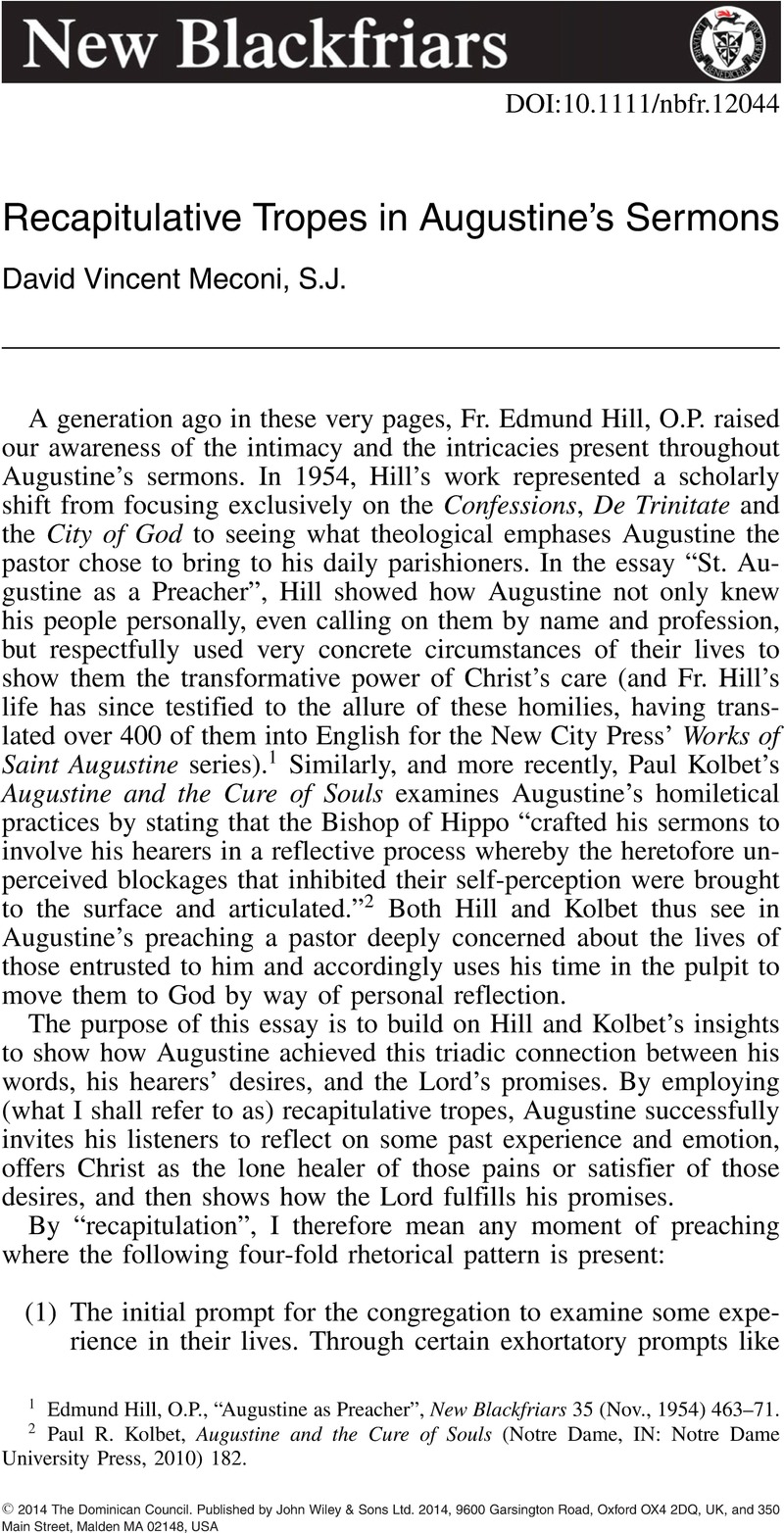Published online by Cambridge University Press: 01 January 2024

1 Hill, Edmund O.P., “Augustine as Preacher”, New Blackfriars 35 (Nov., 1954) 463–71CrossRefGoogle Scholar.
2 Kolbet, Paul R., Augustine and the Cure of Souls (Notre Dame, IN: Notre Dame University Press, 2010) 182Google Scholar.
3 Bonner, Gerald, Freedom and Necessity (Washington D.C.: Catholic University of America Press, 2007) 63Google Scholar.
4 All citations of Augustine come from the New City Press Series (Hyde Park, NY). I shall include these citations in the body of my essay, providing the name of the editor and translator of each work, the numbering of each volume within the series and the page number of the citation.
5 For the philosophical history and use of this term psychagogy, see Kolbet (op. cit.) 7–12; see also my “Becoming Gods by becoming God's: Augustine's Mystagogy of Identification”, Augustinian Studies 39 (Fall, 2008) 61–74CrossRefGoogle Scholar.
6 In my Introduction to Patristic Literature course here at Saint Louis University, one of my students, a young Jesuit scholastic, recently mentioned that of all the soteriologies present in the Church Fathers, recapitulation seemed the most loving “because Jesus says to the world, ‘I have come to make all things new’, not ‘to make all new things’”. Thanks to Mr. David Lugo, S.J. for this wonderfully poetic insight.
7 Arbesmann, Rudolph, ‘The Concept of Christus Medicus in St. Augustine’, Traditio 10 (1954) 1–28; 2CrossRefGoogle Scholar.